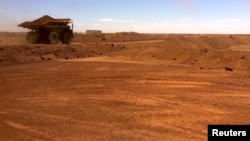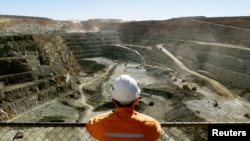A new report into sexual harassment and the assault of women working in Western Australia’s mining industry finds systematic and horrific levels of abuse. Lawmakers are now calling for much needed reforms to protect female employees in this multibillion dollar resources sector.
After almost a year of investigations, an inquiry by state lawmakers has concluded Western Australia’s multibillion-dollar mining sector failed to protect women from sexual predators.
Its report said that victims had faced violence, stalking, grooming and threats to their jobs.
Australian Sex Discrimination Commissioner Kate Jenkins said that immediate change was needed in the mining industry. Jenkins is one of seven commissioners at the Australian Human Rights Commission. Her job is to promote gender equality and combat discrimination. She said the inquiry has highlighted the “unacceptable treatment of women.”
The probe into allegations of abuse in the resources sector was ordered after several women detailed allegations to the police of sexual misconduct at major Western Australian mines.
Lawmakers found that female workers at remote facilities "frequently have to deal with sexual harassment and sexual assault.” Many incidents were ignored by employers. One committee member told Western Australia’s state parliament that she was shocked by the scale of the problem.
The report condemned the state’s mining safety regulator and government officials for their inaction.
Simone McGurk, Western Australia’s minister for women's interests, says the inquiry has uncovered appalling levels of abuse.
“The more we talk about this, we are seeing more and more cases coming forward. For an industry that prides itself on taking safety seriously, you know, [it] talks a lot about its safety record, it is very clear that many women haven’t felt that those women’s experience of sexual harassment or sexual violence was worthy of their company’s consideration,” she said.
BHP and Rio Tinto were among the companies to appear before the committee.
The mining giants said during the inquiry they had fired staff over assaults and misconduct. The companies said they had boosted safety measures, including better security cameras, stricter limits on alcohol consumption and more thorough reporting procedures for complaints. They have not responded to the report publicly so far.
Many of the mine sites are in remote parts of Australia and have a hard-drinking, male-dominated culture.
The report made 24 recommendations. It said industry regulators could adopt a “register of offenders” to monitor serial wrongdoers.
Australia’s federal government said it would examine whether concerns highlighted by the inquiry could be addressed at a national level.






